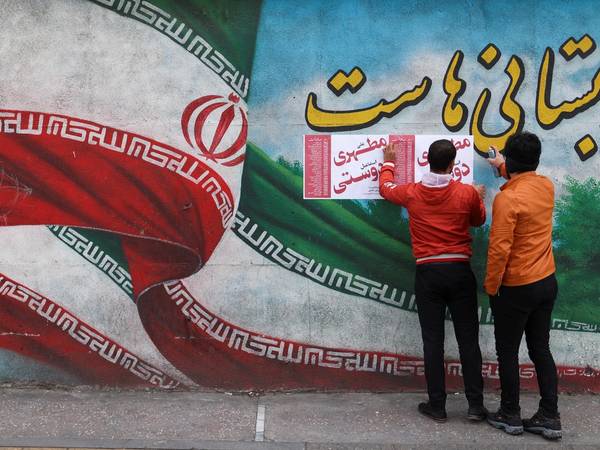On the eve of the elections in Iran, the regime has drastically stepped up its measures to target dissidents and critics and simultaneously, to lure the unwilling citizens to vote.
It comes as the Islamic Republic has launched a renewed crackdown on citizens and dissidents advocating a boycott of the vote.
Iran’s parliamentary and the Assembly of Experts elections will be held on March 1. On Wednesday, Mohammad Hossein Poursani, Deputy Minister of Education, announced the recruitment of students as “representatives of the governor” in the voting.
Government officials had previously repeatedly warned about the presence of students in cyberspace, but as the election nears they seem to be taking a softer approach at least temporarily.
Praising youngsters’ technological awareness, Poursani said: “Students today are those of cyberspace, Artificial intelligence (AI) and the Metaverse, and they live in an atmosphere maybe several years ahead of us.”
He added that the Shad educational application, which is used by millions of school students across Iran to access educational materials, has been employed for election campaigns.
According to the latest data, more than 16 million students are enrolled in the current school year.
The regime has tried to use students to reach out to their families and neighbors in a bid to bring them to the polls.
In his Wednesday speech for the youth voting for the first time, Iran’s Supreme Leader Ali Khamenei urged them to encourage their classmates, parents, friends and relatives to participate in the elections.
Some government institutions, including the University of Tabriz, have vowed to give presents to the first-time voters.
Soldiers Who Vote Will Be Granted Incentive Leave
Meanwhile, military authorities in Iran have tried to capitalize on soldiers and officers in order to increase the voter turnout.
Iran's infamous police chief Ahmad-Reza Radan said that the soldiers serving in the police force will be granted four days of incentive leave in exchange for participating in the elections.
As the election security is ensured, it is the “duty” of the citizens to vote, Radan went on to say.
Threatening And Arresting Dissidents
While political activists, opposition parties and large sections of the public have pledged to boycott the elections, Iran’s security and intelligence institutions have mounted their pressure to prevent boycott campaigns.
According to West Azarbaijan police force commander Rahim Jahanbakhsh, 50 political dissidents in the province posting calls online for a boycott of upcoming elections were arrested.
Any calls to boycott the elections will be dealt with, he threatened.
Some activists also reported that they received threatening text messages from Iran’s judiciary over launching or supporting boycott campaigns on their social media pages.
Manipulation Of The Voting Process
Some government efforts to engineer elections have focused on the voting process.
Iran’s Election Office has announced that the ballots for both parliamentary and the Assembly of Experts elections are given to the voters in one sheet. This means that those who choose to vote in one election will necessarily have to participate in another as well.
Unlike the previous elections, citizens will not have to carry their birth certificates to vote. According to the regime officials, those eligible to vote can participate in the elections only by showing their passports, national identifications or military service cards.
Moreover, stamping the birth certificate has been removed from the voting process.
A Statistical Leap In Government-Backed Polls
Polls conducted or reported by government agencies indicate a sharp increase in voter turnout.
Iranian Students Polling Agency (ISPA), affiliated with the Supreme Council of the Cultural Revolution, reported a projection of 50% turnout.
This is while ISPA had said two months ago that only 28% of the Iranians were expected to vote.
Meanwhile, the Islamic Republic of Iran Broadcasting (Seda va Sima), whose head is appointed by the Supreme Leader, announced 70% of the electorate will participate in the elections.
These statistics counter the results of independent polls. A telephone poll conducted from abroad by Washington-based Stasis Consulting revealed that turnout in Iran’s upcoming parliamentary elections is set to hit a new record low of just 34 percent.
The projection is 9% down on the last elections four years ago, already the lowest turnout at the time.
